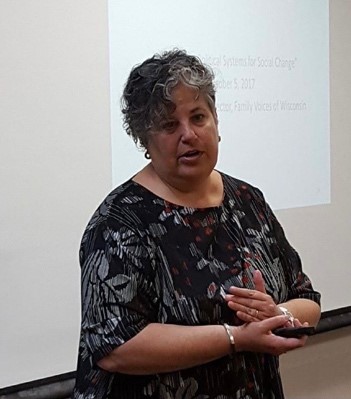New HRSA Data Website
The Health Resources and Services Administration (HRSA) has unveiled a new data and information website at https://data.hrsa.gov/. The website user can find health centers and health shortage areas, and can obtain fact sheets about HRSA activities at the national, state, county, or regional level, or by congressional district. Data are also available in interactive maps and through customizable data queries.
Updated: Proposed rule on immigrant “Public Charge” determinations
As first reported in the September 26 Update (p. 3), the Department of Homeland Security (DHS) is proposing to change the way in which determinations are made about the likelihood that an immigrant is or will become a “public charge,” and thus should not be admitted to the U.S. or granted a green card. Under the proposed rule, receiving benefits such as non-emergency Medicaid services, food stamps (SNAP), and housing benefits for a certain period of time in the previous three years (counting only periods after the effective date of the final rule), or receiving a certain level of cash payments, would be viewed as evidence that someone may become a “public charge.” Other factors would also be considered, including age (being younger than 18 or elderly are negative factors), family income, English proficiency, and health status (having a serious health condition is a negative factor unless the person has private insurance or other means to cover the costs). Therefore, advocates fear that the rule would significantly deter people, including children, from accessing Medicaid and other important safety-net programs. Note: Receiving services under the Individuals with Disabilities Education Act (IDEA) or school-based Medicaid services would NOT be counted as a factor in public-charge determinations. Benefits received by an immigrant’s family members would NOT be considered in determining whether that person is or might become a public charge.
Public comments. Since this is such a far-reaching proposal, it is important that as many individuals as possible submit comments for the record about how it would impact them or the populations they work with. Comments will be accepted on this page of Regulations.gov through December 10 at 11:59 pm EST. Below are links to the rule and various (fairly short and simple) explanations and analyses:
- Proposed rule (in October 10 Federal Register). Please note that, on page 51174 of the Federal Register, the administration asks for comments about how to treat receipt of public benefits by children in general, and specifically whether to add CHIP enrollment as part of public-charge determinations.
- Proposed Changes to Public Charge and FAQ (Center for Law and Social Policy/National Immigration Law Center, 10/10/18)
- Explanation from the September 26 Washington Update
- Changing Public Charge Immigration Rules: The Potential Impact on Children Who Need Care (California Health Care Foundation, 10/22/18) [Researchers predict that the new rule would cause between 700,000 and 1.7 million children in need of medical attention to lose access to or experience delays in receiving Medicaid or CHIP benefits, including as many as 333,000 kids with at least one life threatening condition.]
- The Health Impact of the Proposed Public Charge Rules (Health Affairs Blog, 9/27/18)
- Proposed Changes to “Public Charge” Policies for Immigrants: Implications for Health Coverage (Kaiser Family Foundation, 9/24/18)
Updates Regarding the Detention of Immigrant Children:
- HHS Reviews Refugee Operations as Trump Calls for Border Crackdown (Politico, 10/23/18)
- Hundreds of Migrant Children Held In U.S. Tent City for Months: Filings (Reuters, 10/22/18)
WORTH REPEATING: Family Voices Immigration Toolkit
The Family Voices Immigration Toolkit includes everything families, physicians and other professionals need to know about providing medical information to immigration officials, which may be needed to argue for allowing a child with special health care needs or the child’s parent to stay in the U.S.


















